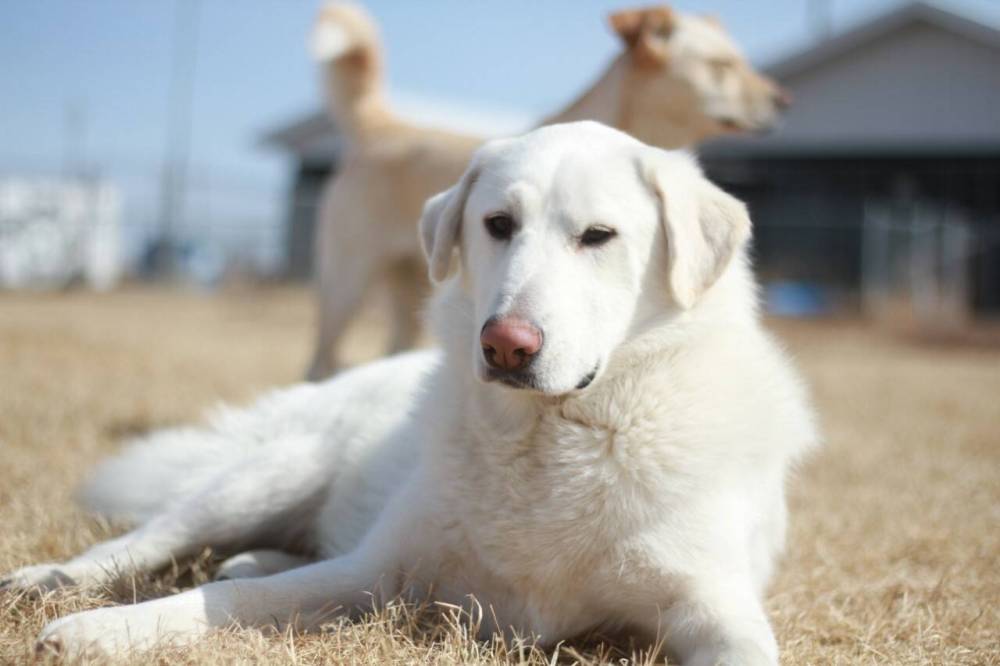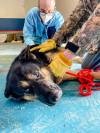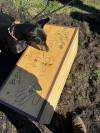Program aims to limit rabies at northern First Nations
Communities overwhelmed by packs of dogs, shortages of veterinarians
Advertisement
Read this article for free:
or
Already have an account? Log in here »
To continue reading, please subscribe:
Monthly Digital Subscription
$0 for the first 4 weeks*
- Enjoy unlimited reading on winnipegfreepress.com
- Read the E-Edition, our digital replica newspaper
- Access News Break, our award-winning app
- Play interactive puzzles
*No charge for 4 weeks then price increases to the regular rate of $19.95 plus GST every four weeks. Offer available to new and qualified returning subscribers only. Cancel any time.
Monthly Digital Subscription
$4.99/week*
- Enjoy unlimited reading on winnipegfreepress.com
- Read the E-Edition, our digital replica newspaper
- Access News Break, our award-winning app
- Play interactive puzzles
*Billed as $19.95 plus GST every four weeks. Cancel any time.
To continue reading, please subscribe:
Add Free Press access to your Brandon Sun subscription for only an additional
$1 for the first 4 weeks*
*Your next subscription payment will increase by $1.00 and you will be charged $16.99 plus GST for four weeks. After four weeks, your payment will increase to $23.99 plus GST every four weeks.
Read unlimited articles for free today:
or
Already have an account? Log in here »
Hey there, time traveller!
This article was published 08/03/2024 (670 days ago), so information in it may no longer be current.
BRANDON — The Manitoba Veterinary Medical Association plans to reduce the risk of rabies by getting crucial services to northern and First Nations communities, which often have no vets, in a program to be launched in June.
A limited access vaccinator program was approved at the organization’s recent annual general meeting and has the support of the Winnipeg Humane Society and Manitoba government.
“This is one of the first programs in Canada that’s operating in this way,” association executive director Corey Wilson said. “We’re definitely the first province in Canada, and one of the first (places) in North America, to offer a program like this.”

The Manitoba Veterinary Medical Association’s new limited access program will help to inoculate and deworm dogs in remote and First Nations communities starting in June. (File)
Manitoba has an acute shortage of vets and northern and remote communities are often plagued by large packs of roaming dogs that threaten people’s safety.
Under the program, registered veterinary technologists and trained non-veterinarians would administer procedures such as vaccinations and deworming.
“Under this program, everything is happening under the supervision of a vet,” Wilson said.
By administering vaccinations and basic veterinary care, the program will try to mitigate the spread of diseases such as rabies, which is a significant threat in communities that have limited veterinary access.
Rabies, which is fatal once symptoms appear, can be treated with animal vaccines and antibody injections for humans. In Canada, rabies primarily spreads through wildlife bites and saliva, with arctic foxes, skunks and bats carrying distinct rabies strains that pose threats to Manitobans.
Dogs often link rabies transmission among wildlife, domestic animals and humans. By vaccinating dogs in remote communities, fewer people will require treatment after a dog bite, and fewer dogs will be put down for rabies testing.
“We are addressing the urgent need for veterinary services in Manitoba’s remote communities above the North 53rd parallel and in First Nations communities,” he said.
“This collaborative effort is not just about delivering veterinary care; it’s about enabling high standards of animal health care across the province, building stronger community relationships and respecting the diverse needs and values of Indigenous peoples.”
A working group, which was formed in fall 2021, spearheaded the program based on a request from the humane society that sought collaboration with the vets association and the chief veterinary officer of Manitoba.
After consultations, the groundwork for the program was laid.
Dr. Alexandra Jerao, a veterinarian with the province, believes the program will be a meaningful contribution to the reconciliation process with Indigenous communities.
“By training individuals to provide essential veterinary services to their community, we are not only improving animal health and welfare and protecting public health, but also honouring the principles of respect, partnership and cultural understanding,” Jerao said.
The office will look at the data that comes out of the program to determine what type of care is being provided throughout the province, Wilson said.
— Brandon Sun
History
Updated on Friday, March 8, 2024 6:37 AM CST: Adds photo






